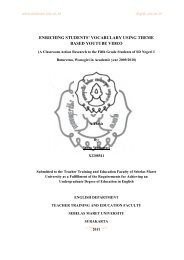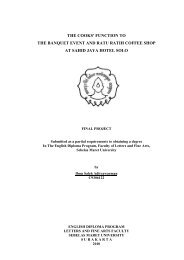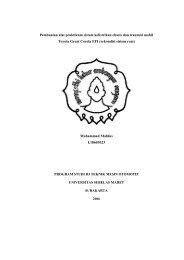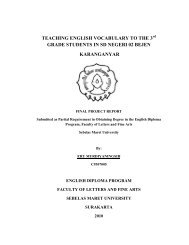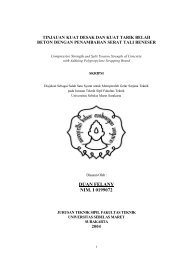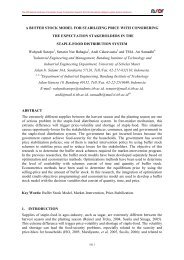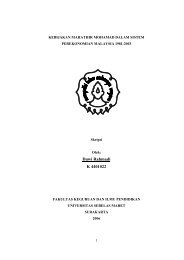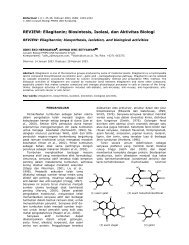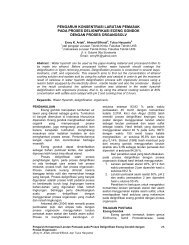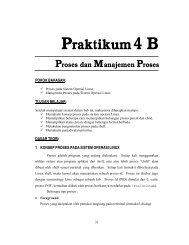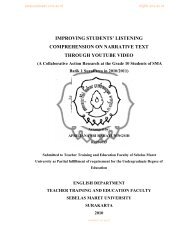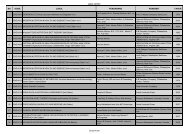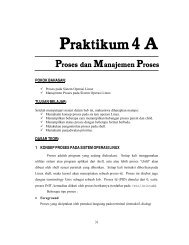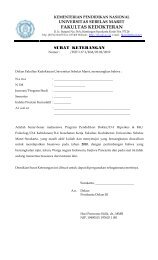IMPROVING STUDENTS' SPEAKING PROFICIENCY USING GAMES
IMPROVING STUDENTS' SPEAKING PROFICIENCY USING GAMES
IMPROVING STUDENTS' SPEAKING PROFICIENCY USING GAMES
Create successful ePaper yourself
Turn your PDF publications into a flip-book with our unique Google optimized e-Paper software.
esult such as brief notes or lists, a rearrangement of jumbled items, adrawing, and a spoken summary.4). Give some instruction or training in discussion skillsIf the task is based on group discussion then include instructions aboutparticipation when introducing it. For example, tell students to make sure thateveryone the group contributes to the discussion appoints a chairperson toeach group who will regulate participation.5). Keep students speaking the target languageTeachers might appoint one of the groups as monitor, whose job is to remindparticipants to use the target language, and perhaps report later to teacher howwell the group managed to keep it. Even if there is no actual penalty attached,the very awareness that someone is monitoring such lapses helps participantsto be more carefulB. Games1. The Definition of GamesAccording to Jill Hadfield (1996: 4) a game is an activity with rules, a goaland an element of fun. He also said that there are two kinds of games: competitivegames and co–operative games. A competitive game is games in which the playeror teams race to be the first to reach the goal. And co – operative games is gamesin which players or teams work together towards a common goal.Chen (2005) also said in his journal that the benefits of using games inlanguage learning are promote communicative competence, create a meaningfulxxxi



